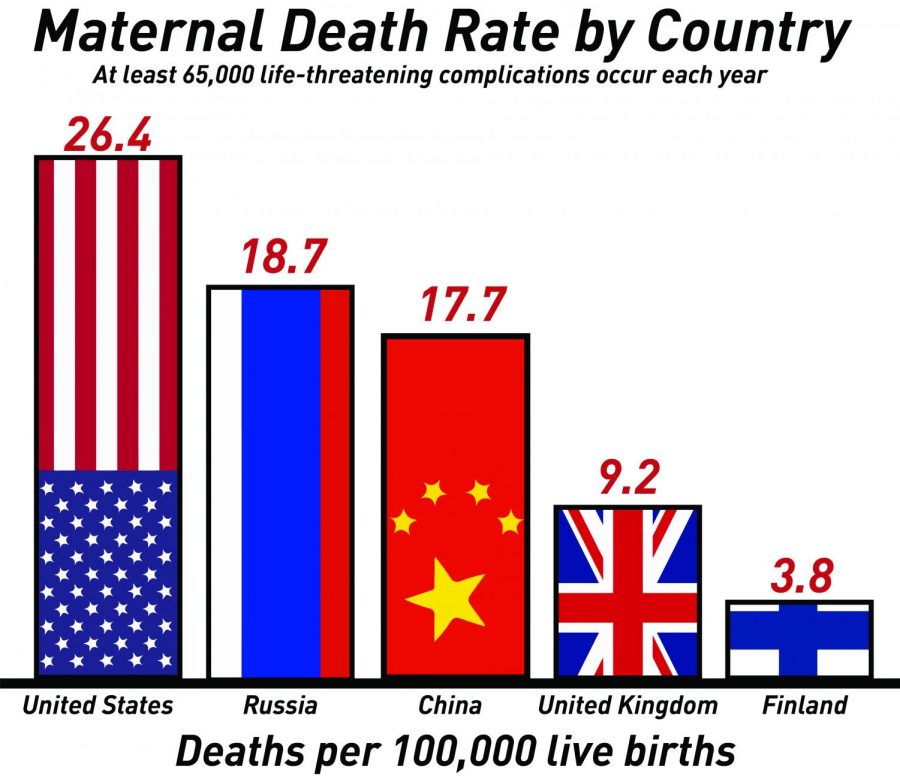EDITORIAL: To save mothers, we must empower them
EDITORIAL: To save mothers, we must empower them
January 28, 2019
The maternal mortality rate in the U.S. is the highest of any developed country. A 2015 Lancet report found that 26.4 women per 100,000 die due to childbirth and complications, compared to 9.2 in the U.K. and 3.8 in Finland.
According to the Maternal Health Task Force, at least 60 percent of these deaths were preventable. In addition, 65,000 women nearly died due to complications, according to a 2017 NPR investigation. This is unacceptable.
To combat this, we need to address that it is a problem which must be examined and understood. We have created a culture of mysticism around pregnancy and birth, emphasizing the “magic” of the female body and how women “glow” during pregnancy, to the detriment of pregnant people. Confronting the fact that pregnancy and birth can be dangerous, scary and sometimes fatal is the first step toward creating the resources necessary to prevent negative outcomes.
Women are simultaneously dehumanized and objectified throughout pregnancy, on the one hand being told that this is a miraculous time they should be thankful for, and on the other hand not having access to necessary prenatal information. Women’s health concerns are routinely dismissed by those who are supposed to provide care.
In addition, sexual education is severely limited across the country, with information focused on avoiding pregnancy at all costs. High-risk pregnancies, hemorrhages and infections are rarely discussed; knowing what signs and symptoms to look for could prevent tragedy. Information that could save lives is taboo. This toxic combination of restricting information and dismissing concerns disempowers women before, during and after pregnancy.
Women who are socioeconomically disadvantaged likely will not have access to insurance that covers routine screenings and tests, much less prenatal vitamins and hospital monitoring after birth. The medical system is set up so that the poor cannot afford private suites and 24/7 monitoring for several days after birth, when it is most needed to combat dangerous complications. Many women are forced to continue working during this high-risk time because they cannot afford time off and because there is no set maternal leave policy in the U.S.
Mothers deserve our country’s best, and that is not what they are getting. To lower our obscenely high maternal death rate, we must approach it at every level. Hospitals need a diverse staff equipped to handle emergencies and respond to questions that deserve answers. Laws must ensure proper funding goes to investigating maternal deaths, guaranteeing maternity leave and enforcing standards of care. We need to demand universal healthcare so every pregnant woman has access to care throughout their life. As a culture, we need to view pregnancy and birth not as magic, but as a human process that requires strength, education and support.
If the measure of a society is how it treats its mothers, it is well past time to look long and hard at what our maternal death rate says about us.








